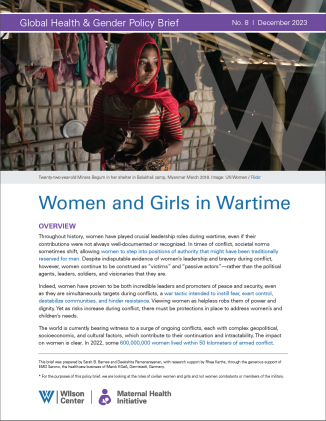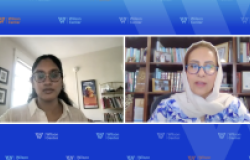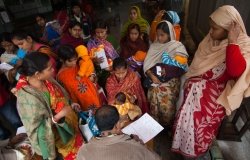Global Health & Gender Policy Brief: Women and Girls in Wartime


Throughout history, women have played crucial leadership roles during wartime, even if their contributions were not always well-documented or recognized. In times of conflict, societal norms sometimes shift, allowing women to step into positions of authority that might have been traditionally reserved for men. Despite indisputable evidence of women’s leadership and bravery during conflict, however, women continue to be construed as “victims” and “passive actors”—rather than the political agents, leaders, soldiers, and visionaries that they are.
The world is currently bearing witness to a surge of ongoing conflicts, each with complex geopolitical, socioeconomic, and cultural factors, which contribute to their continuation and intractability. The impact on women is clear. In 2022, some 600,000,000 women lived within 50 kilometers of armed conflict. Evidence shows that armed conflict increases the risk of gender-based violence (GBV) and maternal deaths, decreases girls’ attendance in school and women’s participation in the paid economy, and has led to the displacement of more than 40 million women and children. GBV is even more prevalent among women and girls who have been forcibly displaced.
In a new policy brief, Women and Girls in Wartime, the Wilson Center’s Maternal Health Initiative explores the diverse ways women and girls are affected by conflict, both as targets of violence and as leaders for peace and security. We highlight existing US foreign policies to support, protect, and empower women and girls during conflict and offer recommendations to improve the wellbeing and acknowledgment of women’s and girls’ roles during wartime.
Authors

Maternal Health Initiative
Life and health are the most basic human rights, yet disparities between and within countries continue to grow. No single solution or institution can address the variety of health concerns the world faces. By leveraging, building on, and coordinating the Wilson Center’s strong regional and cross-cutting programming, the Maternal Health Initiative (MHI) promotes dialogue and understanding among practitioners, scholars, community leaders, and policymakers. Read more











